Detailed introduction of University of Peloponnese:
Introduction and Overview
The University of Peloponnese is a comprehensive public university in Greece with campuses in several cities in the Peloponnese region, including Tripoli, Corinth, Kalamata, Nafplio, Sparta and Patras, with students from different regions and countries, providing a rich variety of disciplines and academic research opportunities.
History and Establishment
Established by Presidential Decree 13/2000, the Tripoli campus was first opened on September 20, 2002, and the Department of Computer Science and Technology and the Department of Telecommunications Science and Technology began teaching. In 2019, the Western Greece Technical Educational Institute was abolished, and its Engineering College was absorbed by the University of the Peloponnese, and the Technical Educational Institute of the Peloponnese was also incorporated into the school.
School Strength
Faculty: It has a team of highly professional teachers to provide students with high-quality teaching and guidance.
Academic research: Actively carry out various research projects. Since its establishment, it has carried out many research projects and educational programs, and has made outstanding contributions in computer technology and pastry science research.
International cooperation: It has established cooperative relations with many foreign universities and institutions, and participated in international exchange and cooperation projects, such as the Erasmus + program, which provides students with broad international exchange and learning opportunities.
Nature of the institution
Public university, funded and managed by the Greek government.
Educational philosophy
Committed to generating, disseminating and promoting scientific knowledge through teaching, research and contribution to the cultural and economic development of the local community and the wider society; strengthening interdisciplinary cooperation and synergy between departments within the school and with other institutions in Greece and abroad; expanding and improving the quality of academic programs at all levels; working closely with local and regional authorities; strengthening ties with alumni and external stakeholders; realizing the internationalization of research and teaching; establishing effective administrative structures and practices; integrating information and communication technologies.
Key laboratories and disciplines
Key laboratories: No particularly well-known public key laboratory information has been found, but the school has 61 research laboratories covering a variety of disciplines.
Key disciplines: Computer Science and Technology, Communication Science and Technology, History, Archaeology, Cultural Resources Management, Linguistics, Social Education Policy, Political Science and International Relations, Economics, Drama, Sports Organization and Management, Nursing and other disciplines have certain advantages and characteristics.
Faculties and Majors
The school is divided into 9 colleges, further divided into 22 departments, offering undergraduate, master's and doctoral degree programs. Some majors are as follows:
School of Science and Technology: Department of Computer Science and Technology, Department of Telecommunications Science and Technology, Department of Economics, Department of Management Science and Technology, Department of Digital Systems, etc.
School of Humanities and Culture: Department of Linguistics, Department of History, Archaeology and Cultural Resources Management, etc.
School of Social and Political Sciences: Department of Political Science and International Relations, Department of Social and Education Policy, etc.
Rankings
In the 2024 unirank ranking, Greece ranks 16th in the country and 2478th in the world.
Costs
Tuition fees for undergraduate courses are generally around 500-1000 euros per semester, and tuition fees for graduate courses are about 800-1500 euros per semester. The specific fees vary depending on the major.
Campus environment
Teaching facilities: Each campus is equipped with modern classrooms, laboratories, libraries, computer centers and other teaching facilities to provide students with good learning conditions.
Living facilities: The school provides students with dormitories, canteens, sports facilities and other living facilities to meet students' daily needs.
Cultural environment: The city and region where the school is located have rich historical and cultural heritage, such as ancient Greek ruins and museums, which provide students with a strong cultural atmosphere and rich extracurricular learning resources.
-
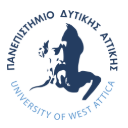
University of West Attica
-

Technical University of Crete
-

International Hellenic University
-
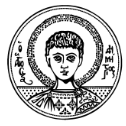
Aristotle University of Thessaloniki
-
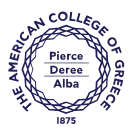
The American College of Greece
-
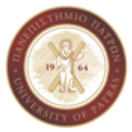
University of Patras
-

University of Ioannina
-

Democritus University of Thrace
-

Hellenic Open University
-
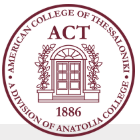
American College of Thessaloniki
-

Mesoamerican University
-

Istmo University
-

Mariano Galvez University of Guatemala
-

Regional University of Guatemala
-

Galileo University
-

Francisco Marroquín University
-

Rafael Landívar University
-

University of the Valley of Guatemala
-

University of San Carlos of Guatemala
-

Technological Institute of Tlaxcala Plateau
-

Golfo University
-

Technological University of South Sonora
-

Technological University of Huejotzingo
-

Tizimín Institute of Technology
-

Chilpancingo Institute of Technology

